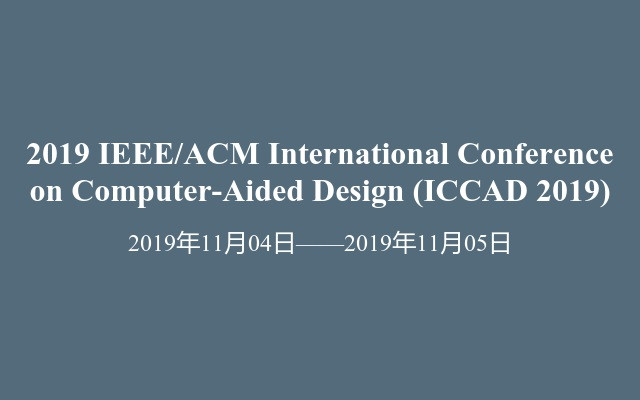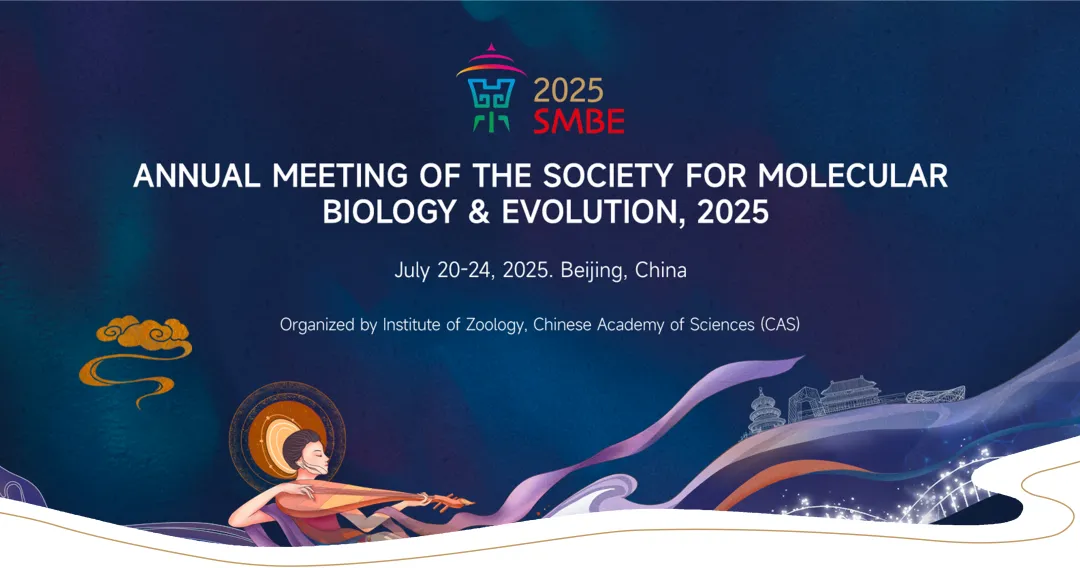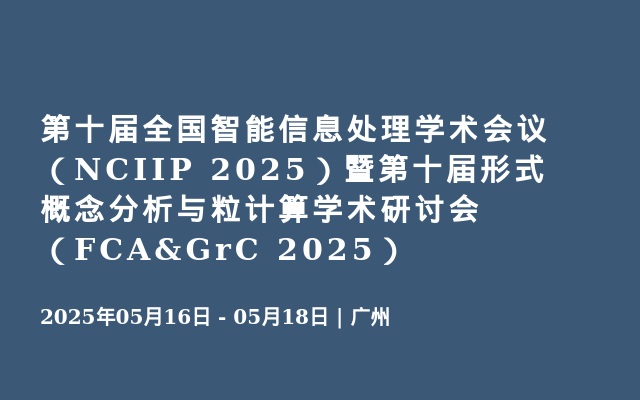2019 IEEE/ACM International Conference on Computer-Aided Design (ICCAD 2019)
时间:2019-11-04 09:00 至 2019-11-05 18:00
地点:Westminster

首页 > 商务会议 > 学术会议会议 > 2019 IEEE/ACM International Conference on Computer-Aided Design (ICCAD 2019) 更新时间:2019-09-04T09:33:47

|
2019 IEEE/ACM International Conference on Computer-Aided Design (ICCAD 2019) 已截止报名会议时间: 2019-11-04 09:00至 2019-11-05 18:00结束 会议地点: Westminster 详细地址会前通知 None 周边酒店预订 主办单位: IEEE Electron Devices Society IEEE Council on Electronic Design Automation IEEE Circuits and Systems Society Association for Computing Machinery Special Interest Group on Design Automation - ACM SIGDA |
 会议内容
会议内容
The objective of the International Conference on Computer-Aided Design (ICCAD) is to provide education and technical enrichment for Computer-Aided Design (CAD) professionals of electrical and electronics engineering and promote advancement of the state-of-the-art in CAD and electronic design technology. ICCAD is to provide a forum for technical discussions and a platform for examining new ideas and research topics. ICCAD will also provide a forum for technical evaluation of CAD vendor's products in a way that does not detract from the technical program and research emphasis of ICCAD topics.
初稿截稿日期:2019-04-08
初稿录用通知日期:2019-06-21
摘要截稿日期:2019-04-01
摘要录用通知日期:2019-06-21
终稿截稿日期:2019-07-26
Paper submissions must be made through the online submission system at the ICCAD website
Regular papers will be reviewed as finished papers; preliminary submissions will be at a disadvantage.
Authors are asked to submit their work in two stages. In stage one (abstract submission), a title, abstract, and a list of all co-authors must be submitted via the ICCAD web submission site. In stage two (paper submission), the paper itself is submitted. Authors are responsible for ensuring that their paper submission meets all guidelines, and that the PDF is readable.
- System-level specification, modeling, and simulation
- System design flows and methods
- HW/SW co-design, co-simulation, co-optimization, and co-exploration
- HW/SW platforms for rapid prototyping
- System design case studies and applications
- System-level issues for 3D integration
- Micro-architectural transformation
- Memory architecture and system synthesis
- System communication architecture
- Network-on-chip design methodologies and CAD
- Modeling and simulation of heterogeneous platforms
- High-level synthesis for heterogeneous computing
- Power/performance analysis of heterogeneous and cloud platforms
- Programming environment of heterogeneous computing
- Application driven heterogeneous platforms for big data, machine learning etc.
- Applications and designs for systems based on optical devices
- Multi-core/multi-processors systems
- HW/SW co-design for embedded systems
- Static and dynamic reconfigurable architectures
- Memory hierarchies and management
- System-level consideration of custom memory/storage architectures
- Application-specific instruction-set processors (ASIPs)
- CAD for Internet-of-Things (IoT) and sensor networks
- Design issues for Internet-of-Things (IoT) Devices
- Modeling and analysis of CPS
- CAD for automotive systems and power electronics
- Dependable and safe CPS design
- Analysis and optimization of data centers
- CAD for display electronics
- Green computing (smart grid, energy, solar panels, etc.)
- Hardware and devices for neuromorphic and neural network computing
- Design method for learning on a chip
- Systems for neural computing (including deep neural networks)
- Neural network acceleration techniques including GPGPU, FPGA and dedicated
- ASICs
- CAD for bio-inspired and neuromorphic systems
- Real-time software and operating systems
- Middleware and virtual machines, runtime support and resource management
- Timing analysis and WCET
- Profiling and compilation techniques, domain-specific embedded libraries
- Design exploration, synthesis, validation, verification, and optimization
- Software techniques and programming models for multicores, GPUs, and multithreaded embedded architectures
- System and embedded software security techniques
- Malware and Cloud security
- Security and privacy for the Internet of Things
- Embedded software forensics
- Hardware-based security (CAD for PUF’s, RNG, AES etc)
- Detection and prevention of hardware Trojans
- Side-channel attacks, fault attacks and countermeasures
- Split Manufacturing for security
- Design and CAD for security
- Security implications of CAD
- Cyberphysical system security
- Nanoelectronic security
- Supply chain security and anti-counterfeiting
- Power and thermal estimation, analysis, optimization, and management techniques for hardware and software systems
- Energy- and thermal aware application mapping and scheduling
- Energy- and thermal-aware dark silicon system design and optimization
- Energy- and thermal-aware architectures, algorithms and techniques
- Run-time management for the dark silicon
- New hardware techniques for approximate/stochastic computing
- High-level/Behavioral/Logic synthesis
- Technology-independent optimization and technology mapping
- Functional and logic timing ECO
- Resource scheduling, allocation, and synthesis
- Interaction between logic synthesis and physical design
- High-level/Behavioral/Logic modeling and validation
- High-level/Behavioral/Logic simulation
- Formal, semi-formal, and assertion-based verification
- Equivalence and property checking
- Emulation and hardware simulation/acceleration
- Post-silicon functional validation
- Digital fault modeling and simulation
- Delay, current-based, low-power test
- ATPG, BIST, DFT, and compression
- Memory test and repair
- Core, board, system, and 3D IC test
- Post-silicon validation and debug
- Analog, mixed-signal, and RF test
- Cell-library design and optimization
- Transistor and gate sizing
- High-level physical design and synthesis
- Estimation and hierarchy management
- 2D and 3D partitioning, floorplanning, and placement
- Post-placement optimization
- Buffer insertion and interconnect planning
- 2D and 3D clock network synthesis
- 2D and 3D global and detailed routing
- Package-/Board-level routing and chip-package-board co-design
- Post-layout/-silicon optimization
- Layout and routing issues for optical interconnects
- Process technology characterization, extraction, and modeling
- CAD for design/manufacturing interfaces
- CAD for reticle enhancement and lithography-related design
- Variability analysis and statistical design and optimization
- Yield estimation and design for yield
- Physical verification and design rule checking
- DFM for emerging devices (3D, nanophotonics, non-volatile logic/memory, etc.)
- Machine learning for smart manufacturing and process control
- Analysis and optimization for device-level reliability issues (stress, aging effects,
- ESD, etc.)
- Analysis optimization for interconnect reliability issues (electromigration, thermal,
- etc.)
- Reliability issues related to soft errors
- Design for resilience and robustness
- Reliability issues for emerging devices (3D, optical, non-volatile, etc.)
- Deterministic and statistical static timing analysis and optimization
- Power and leakage analysis and optimization
- Circuit and interconnect-level low power design issues
- Power/ground network analysis and synthesis
- Signal integrity analysis and optimization
- CAD for analog, mixed-signal, RF
- CAD for mixed-domain (semiconductor, nanoelectronic, MEMS, and electrooptical) devices, circuits, and systems
- CAD for nanophotonics and optical devices
- Analog, mixed-signal, and RF noise modeling and simulation
- Device, interconnect and circuit extraction and simulation
- Package modeling and analysis
- EM simulation and optimization
- Behavior modeling of devices and interconnect
- Modeling of complex dynamical systems (molecular dynamics, fluid dynamics, computational finance, etc.)
- CAD for biological computing systems
- CAD for systems and synthetic biology
- CAD for bio-electronic devices, bio-sensors, MEMS, and systems
- New device structures and process technologies
- New memory technologies (flash, phase change memory, STT-RAM, memristor, etc.)
- Nanotechnologies, nanowires, nanotubes, graphene, etc.
- Quantum computing
- Optical devices, computing, and communication
David Pan--Dept. of Electrical & Computer Engineering
Iris Bahar--School of EngineeringBrown University
Yuan Xie--University of California
Rolf Drechsler--University of Bremen/DFKI
Tulika Mitra--National University of SingaporeSchool of Computing
Evangeline Young--The Chinese University of Hong KongDept. of Computer Science and Engineering
Patrick Groeneveld--Cadence Design Systems, Inc.
Ulf Schlichtmann--Technical University of MunichInstitute for EDA
Takashi Sato--Graduate School of Informatics, Kyoto UniversityDept. of Computer Science
Sri Parameswaran--Univ. of New South WalesSchool of Computer Science & Engineering
Tsung-Yi Ho--National Tsing Hua UniversityDept. of Computer Science
Nannette Jordan--MP Associates, Inc.
Technical Program CommitteeYuan Xie--University of California
Rolf Drechsler--University of Bremen/DFKI
声明:
1、以上会议非活动家网站主办或承办会议,活动家网站学术会议频道会议信息来自于互联网,方便用户了解行业信息,如需参会、报名、获取会议邀请函或会议日程,请直接与学术会议活动主办单位联系。
2、部分会议内容来自互联网,由于网络的不确定性,活动家网站对所发布的信息不承担真实性的鉴别工作,请谨慎选择。若您发现会议页面信息有误,请联系活动家客服028-69761252纠错。
查看更多
介绍:IEEE Electron Devices Society于2022年12月2日举办2022 IEEE国际电子器件会议 (IEDM 2022)。
主办方:IEEE Council on Electronic Design Automation介绍:IEEE Council on Electronic Design Automation于2020年10月5日举办2020 IFIP/IEEE 28th International Conference on Very Large Scale Integration (VLSI-SOC)。
主办方:IEEE Circuits and Systems Society介绍:IEEE Circuits and Systems Society于2020年10月5日举办2020 IFIP/IEEE 28th International Conference on Very Large Scale Integration (VLSI-SOC)。
主办方:Association for Computing Machinery Special Interest Group on Design Automation - ACM SIGDA
温馨提示
酒店与住宿:
为防止极端情况下活动延期或取消,建议“异地客户”与活动家客服确认参会信息后,再安排出行与住宿。
退款规则:
活动各项资源需提前采购,购票后不支持退款,可以换人参加。
 您可能还会关注
您可能还会关注
-
GOPS 全球运维大会 2025 · 北京站 暨研运数智化技术峰会
2025-06-27 北京
-
GOPS 全球运维大会 2025 · 深圳站 暨研运数智化技术峰会
2025-04-25 深圳
-
2025年第十三届东北国际安全防护用品展
2025-04-24 沈阳
-
2025年DIA药物信息大会暨展览会
2025-05-19 上海














 赞助
赞助